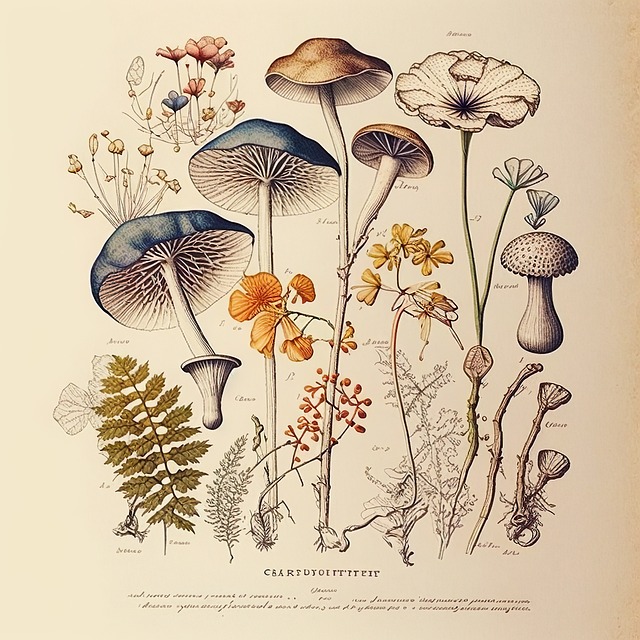In today's interconnected world, translation services for UK scientific journals are vital for sharing groundbreaking research globally. These services bridge linguistic and cultural gaps, enabling international collaboration by accurately translating complex scientific concepts. Adhering to best practices ensures technical terminology and data are conveyed clearly across languages, fostering a diverse scientific community. Professional translators must understand both the source material and target audience, respecting copyright and ethical guidelines. By expanding readership and collaborations, these services enhance the global impact of UK journals like Nature, Science, and The Lancet.
In the dynamic realm of global scientific research, understanding the role of translation services is paramount. The UK, a hub of academic excellence, has long relied on peer-reviewed journals as a tapestry for knowledge exchange. However, navigating international publication requirements can be labyrinthine. This article delves into the significance of scientific journals in the UK landscape and explores how translation services facilitate global collaboration. We examine challenges researchers face when publishing abroad and provide best practices for effective content translation. Ultimately, we uncover the benefits of professional translation, supported by case studies, to enhance journal reach and impact within the UK scientific community.
- Understanding the Significance of Scientific Journals in the UK Research Landscape
- The Role of Translation Services in Facilitating Global Collaboration
- Challenges Faced by Researchers in Publishing Internationally
- Exploring the Demands and Standards of UK Scientific Journal Publications
- Best Practices for Effective Translation of Scientific Content
- Benefits of Professional Translation for Enhancing Journal Reach and Impact
- Case Studies: Success Stories of Journal Translations in the UK Scientific Community
Understanding the Significance of Scientific Journals in the UK Research Landscape

Scientific journals play a pivotal role in the UK’s research landscape, serving as the cornerstone for knowledge dissemination and academic advancement. They provide a platform for researchers to share their groundbreaking discoveries, engage in scholarly debates, and contribute to the collective understanding of various scientific disciplines. In the digital age, these journals have evolved into dynamic online resources, attracting readers from around the globe. However, their significance extends far beyond mere information sharing; they are essential tools for fostering international collaboration, promoting innovation, and shaping future research directions.
The UK’s rich academic heritage is reflected in its diverse range of scientific journals, many of which hold esteemed positions in their respective fields. As a result, translation services for UK scientific journals have gained prominence, ensuring that this vital knowledge reaches a broader audience worldwide. Accurate and culturally sensitive translations are crucial for avoiding misinterpretations and maintaining the integrity of scientific research, making these services indispensable in today’s globalized scientific community.
The Role of Translation Services in Facilitating Global Collaboration

In today’s globalised scientific landscape, collaboration knows no borders. Researchers from across the globe need to communicate their findings effectively to advance knowledge and drive innovation. This is where translation services for UK scientific journals play a pivotal role, acting as a vital link facilitating international cooperation. By providing accurate and culturally sensitive translations, these services enable researchers based in the UK and worldwide to share their research without language barriers, ensuring that scientific discoveries are accessible and understandable to a global audience.
Translation is more than just word-for-word substitution; it involves conveying complex ideas and nuances from one language to another while preserving the original meaning and intent. For scientific journals, this means translating not only text but also technical terminology, methodologies, and data accurately, ensuring that the research remains credible and meaningful in its target language. Reputable translation services employ professional linguists who possess expertise in scientific fields, ensuring that the translated content is both precise and accessible to the intended audience.
Challenges Faced by Researchers in Publishing Internationally

Navigating the international publishing landscape presents unique challenges for researchers, particularly when it comes to sharing their findings across linguistic barriers. The process of translating scientific research into different languages is complex and requires a deep understanding of both the subject matter and the cultural nuances of each target audience. For UK researchers aiming to publish in global scientific journals, this often involves seeking professional translation services for UK scientific journals to ensure accuracy and clarity.
One significant hurdle is the need for precise and faithful translations that maintain the original meaning and intent of the research. Scientific terminology can be highly specialized, making it crucial to engage translators with subject matter expertise. Additionally, cultural references and idiomatic expressions must be carefully adapted to avoid misinterpretation or loss of context. The demand for high-quality translation services is evident in the growing recognition of professional translation as an indispensable component of international scientific communication.
Exploring the Demands and Standards of UK Scientific Journal Publications

The UK scientific journal landscape demands precision, rigor, and adherence to stringent publishing standards. These journals play a pivotal role in shaping scientific discourse, making it crucial for their content to be accessible and understandable to a global audience. Translation services for UK scientific journals are therefore not just an option but a necessity, ensuring that cutting-edge research reaches its intended audience without linguistic barriers.
When translating scientific articles, service providers must possess a deep understanding of the field to accurately convey complex ideas and methodologies. They should adhere to the specific formatting and style guidelines of each journal, maintaining the integrity of the original work. Moreover, translation services need to consider cultural nuances and variations in terminology to ensure clarity and precision across different languages, thereby facilitating global collaboration and knowledge-sharing within the scientific community.
Best Practices for Effective Translation of Scientific Content

When translating scientific content for UK journals, adherence to best practices is paramount. It begins with a thorough understanding of the source material and the target audience. Accurate translation goes beyond word-for-word substitution; it involves conveying complex ideas and technical jargon in a clear and concise manner. Professional translators should possess expertise in both the subject matter and linguistic proficiency to ensure precision and fluency.
Translation services for UK scientific journals must also account for stylistic and cultural nuances. This includes adopting appropriate terminology specific to the field, maintaining consistency in formatting and references, and respecting copyright and ethical guidelines. Incorporating these best practices ensures that translated articles accurately represent the original research while meeting the high standards expected by UK scientific journals.
Benefits of Professional Translation for Enhancing Journal Reach and Impact

In today’s global scientific landscape, reaching a diverse audience is vital for any academic journal aiming to make an impact. This is where professional translation services for UK scientific journals step in as a game-changer. By employing expert translators, journals can ensure their research content is accessible and impactful across borders. The benefits are numerous: from expanding the readership base to fostering international collaborations, professional translation enhances the visibility and influence of the journal.
Translation goes beyond simple word-for-word conversion; it involves conveying complex scientific ideas accurately while adapting to cultural nuances. Professional translators possess not only linguistic proficiency but also a deep understanding of the subject matter, enabling them to translate technical concepts precisely. This expertise ensures that the journal’s reach is not limited by language barriers, allowing researchers worldwide to contribute and benefit from the published knowledge.
Case Studies: Success Stories of Journal Translations in the UK Scientific Community

The success stories of journal translations in the UK scientific community offer valuable insights into the effectiveness of translation services for UK scientific journals. Many renowned academic publications have benefited from professional translation, ensuring their reach extends beyond linguistic boundaries. For instance, a study published in Nature highlighted how accurate translation facilitated international collaboration and data sharing, leading to breakthroughs in medical research. This case demonstrates the crucial role that translation plays in fostering global scientific discourse.
Similarly, top-tier journals like Science and The Lancet have seen increased readership and impact after implementing rigorous translation protocols. These publications ensure that articles written in diverse languages are translated with precision, preserving the original intent and scientific rigor. Such success stories underscore the importance of high-quality translation services for UK scientific journals, enabling them to compete on a global scale and contribute to the advancement of knowledge worldwide.
Scientific journals play a pivotal role in advancing research globally, and understanding the specific requirements of UK scientific journal publications is essential. By leveraging professional translation services that cater to the unique demands of this field, researchers can overcome linguistic barriers and expand their reach within the international scientific community. This article has explored various aspects, from the challenges of publishing internationally to best practices for effective translation, highlighting the importance of high-quality translations in enhancing journal impact. As the UK continues to foster global collaboration through research, translation services will remain a key enabler, ensuring that groundbreaking discoveries are accessible and impactful worldwide.
